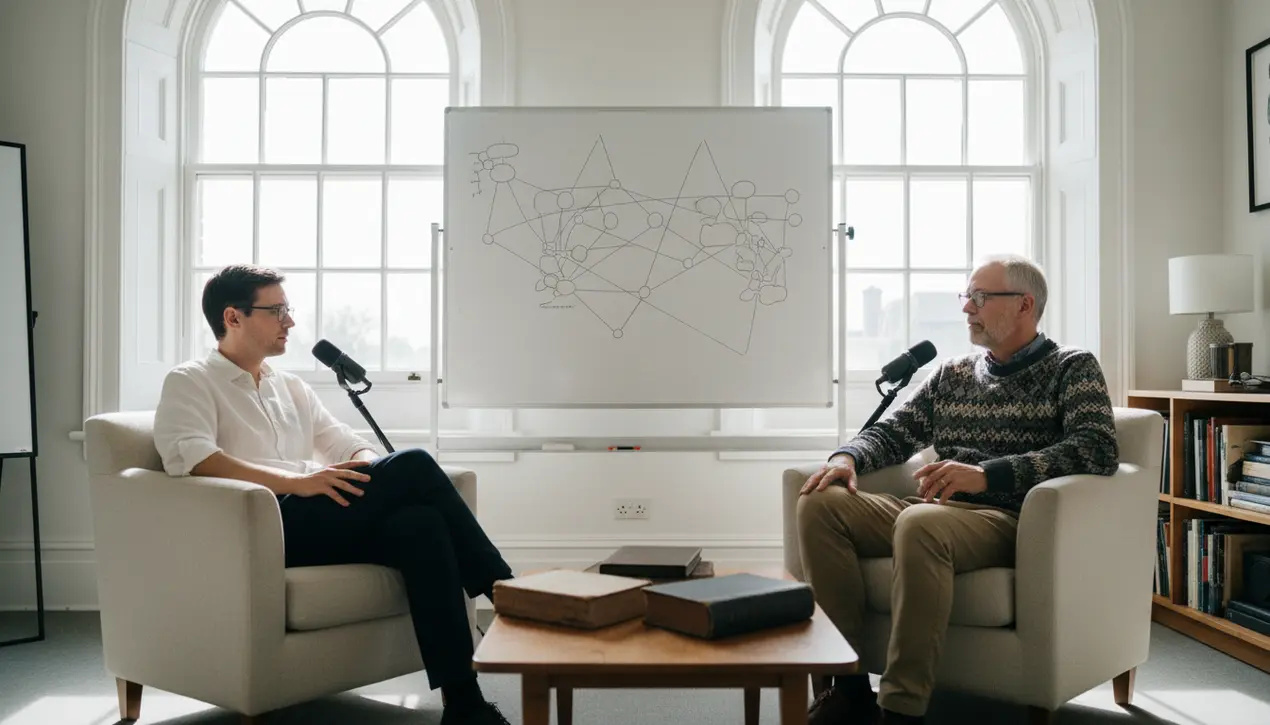
OthereducationEdTech Innovations
The future of the future
AN
Andrew Blake
2 days ago7 min read3 comments
For the 150th episode of the award-winning podcast series *FUTURE OF XYZ*, the host sat down with Nick Foster, the former head of design at Google X and a leading futures designer, and they quickly discovered a shared conviction that society has a fundamentally flawed approach to contemplating what comes next. We so often reduce the future to a spectacle of flashy, headline-grabbing visions, a narrative heavily pushed by leading corporations that makes tomorrow feel like a distant sci-fi movie, something abstract and far removed from our present reality.Both Foster and the podcast host argue that this is a profound misreading; the future isn't a far-off fantasy land but is, in fact, a 'tomorrow' that is already unfolding in the subtle patterns of today, built incrementally by our current choices, our daily behaviors, and, most importantly, the questions we are brave enough to ask. This perspective shifts the entire paradigm from one of passive prediction to active construction, a theme that resonates deeply with the host's own work at iF Design, where the mission is to interrogate how sustainability and genuine impact can be embedded into design decisions, thereby shaping an 'ordinary' tomorrow defined by responsibility and resilience rather than mere convenience.Foster’s new book, *Could Should Might Don’t: How We Think About the Future*, emerged from his years inside the innovation crucible of Google X, where he observed a surprising lack of rigor even among the world's top innovators, who often rely on hunches and oversimplified stories, a disciplinary failure that leaves us dangerously ill-equipped for the complexities ahead. Instead of offering a prescriptive framework, Foster provides a taxonomy, a way to classify our different modes of imagining, hoping to foster more rounded, actionable, and honest collective conversations about uncertainty.A particularly compelling concept from their discussion was the 'future mundane,' the idea that the most significant lived experiences of tomorrow will be found not in technological extremes but in the everyday middle of the bell curve, a notion that perfectly aligns with design's role as the crucial mediator between grand ideas and daily life. We are also witnessing a profound cultural shift, Nick reflects, where for the first time in modern history, entire generations are less confident about the future, having pushed exponential economic growth to its limits and now wrestling with the existential 'well, and now what?' question that undermines old, strident narratives of progress.This moment of reckoning demands a pivot from chasing growth alone to intentionally cultivating resilience, a theme the host frequently encounters in their own consulting work. While technology currently holds the steering wheel in shaping what's next, a power for which corporations and societies have yet to fully accept responsibility, it is ultimately our collective values, courage, and willingness to collaborate that will determine which future we design into being.As Foster wisely reminded, in an era of unprecedented change, we must resist the comforting urge to cling blindly to our existing beliefs and instead commit to asking deeper questions, demanding more rigorous thinking, and recognizing that the act of imagining the future is not a specialized skill for futurists but a collective, essential practice for everyone. That is the core takeaway from this vital conversation: the future is not something that happens to us; it is something we are all responsible for shaping, and that weighty, empowering process begins with how we choose to think, design, and act in the present moment.
#future thinking
#design
#sustainability
#podcast
#Nick Foster
#featured
Stay Informed. Act Smarter.
Get weekly highlights, major headlines, and expert insights — then put your knowledge to work in our live prediction markets.
Related News
Comments
Loading comments...
© 2025 Outpoll Service LTD. All rights reserved.